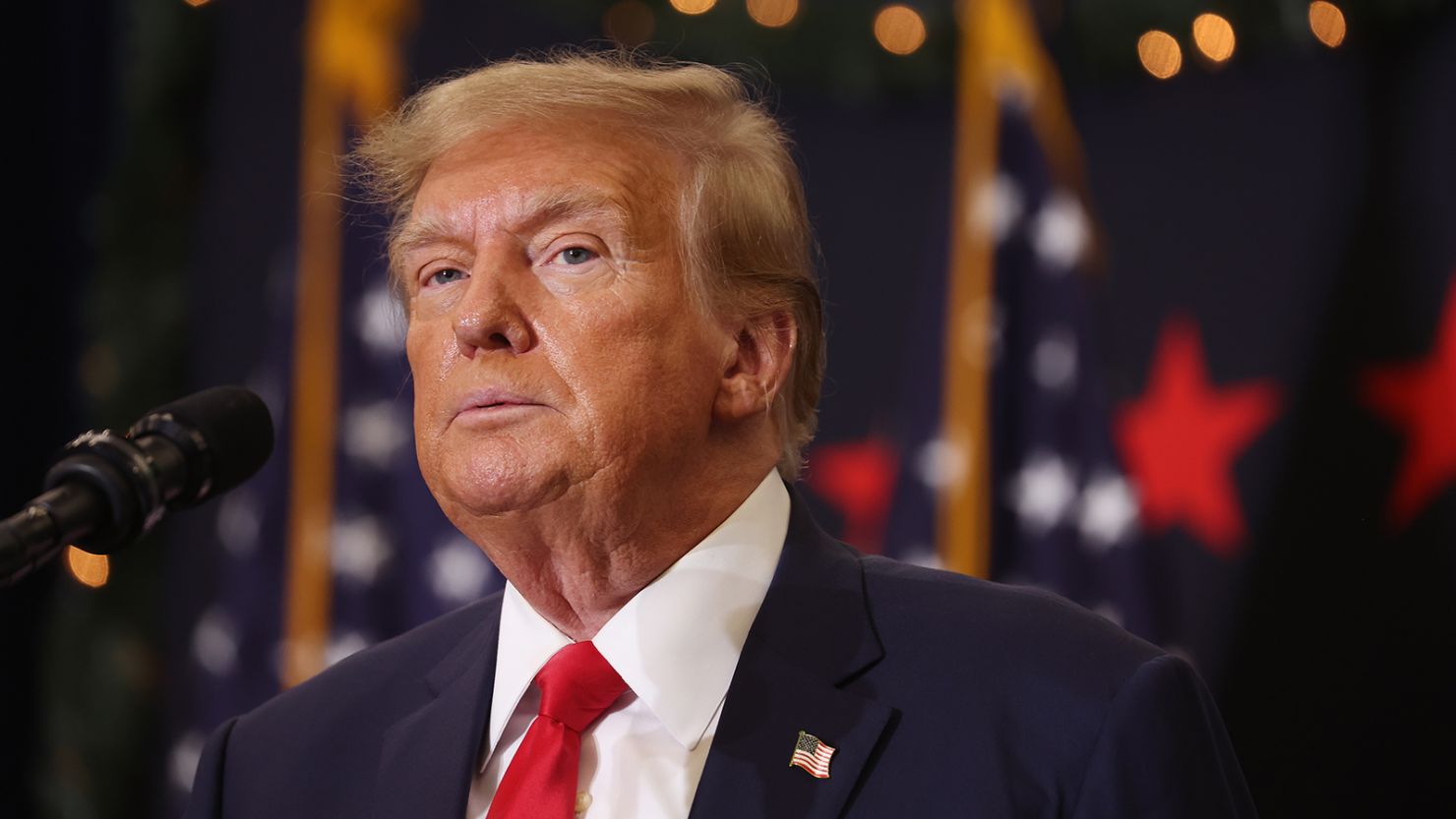
The possibility that the U.S. Supreme Court will intervene to determine whether Donald Trump is eligible to run in the 2024 presidential election is becoming clearer.
In a landmark ruling last Tuesday, the Colorado Supreme Court ordered Colorado’s secretary of state to exclude former President Donald Trump’s name from ballots used in Colorado’s Republican primary, which will take place in the state on March 5.
Overturning a trial judge’s ruling, four of the court’s seven justices concluded that the 45th president is disqualified to run under Section 3 of the 14th Amendment to the U.S. Constitution.
Adopted after the Civil War, this article prohibits people who participated in an insurrection or rebellion from holding government office. It has never been invoked against a presidential candidate.
Colorado’s highest court has thus concluded that Trump participated in an insurrection on Jan. 6, 2021.
“We do not reach these conclusions lightly,” the majority wrote in its decision. “We are mindful of the magnitude and weight of the questions now before us. We are likewise mindful of our solemn duty to enforce the law, without fear or favor, and without being swayed by public reaction to the decisions that the law mandates we reach.”
The Colorado Supreme Court, made up entirely of justices appointed by Democratic governors, stayed its decision until Jan. 4, or until the U.S. Supreme Court rules on the case if it is appealed. Colorado’s secretary of state has set Jan. 5 as the date the state must print ballots for the Republican primary.
The Supreme Court Has the Final Say
Trump’s campaign team has promised to appeal the decision immediately to the U.S. Supreme Court, which has the final say on constitutional questions.
“The Colorado Supreme Court issued a completely flawed decision [Tuesday] evening, and we will swiftly file an appeal to the U.S. Supreme Court and a concurrent request for a stay of this deeply undemocratic decision,” declared Trump campaign spokesman Steven Cheung in a press release. “We have full confidence that the U.S. Supreme Court will quickly rule in our favor and finally put an end to these unAmerican lawsuits.”
Trump did not mention the Colorado Supreme Court decision at all during an hour-long speech in Iowa that evening.
He was impeached by the House of Representatives for inciting insurrection following the violent assault by his supporters on the U.S. Capitol on Jan. 6, 2021, and later acquitted by the Senate.
Trump is also facing criminal charges in Washington and Georgia in connection with his effort to cling to power after losing the 2020 presidential election.
Trump’s ineligibility in Colorado would not be fatal to him. It would probably not prevent him from winning the Republican nomination. His chances of winning Colorado in the presidential election are otherwise slim. In 2020, he lost to Joe Biden in the state by 13.5%.
But his disqualification in Colorado could influence courts or officials in key states, including Minnesota, New Hampshire, and Michigan, where similar lawsuits have been filed.
By affirming the Colorado decision, the U.S. Supreme Court could enable the disqualification of Trump as a candidate for president across the country.
Citizens for Responsibility and Ethics in Washington, which sued Trump in Colorado on behalf of six Republican and independent voters, welcomed a decision that is “not only historic and justified but is necessary to protect the future of democracy in our country.”
In a statement, CREW President Noah Bookbinder declared, “Our Constitution clearly states that those who violate their oath by attacking our democracy are barred from serving in government.”
In Trial Court
Colorado Judge Sarah Wallace held last month that Trump participated in an insurrection on Jan. 6, 2021 when he called on his supporters to march on the Capitol. However, she claimed that Article 3 of the 14th Amendment did not apply to him because Article 3 does not include the office of president among those specifically mentioned including the vice president, senator and member of Congress, among others.
The majority of the Colorado Supreme Court rejected this reasoning put forth by Trump.
“President Trump asks us to hold that Section 3 disqualifies every oath-breaking insurrectionist except the most powerful one and that it bars oath-breakers from virtually every office, both state and federal, except the highest one in the land,” the court’s majority opinion said. “Both results are inconsistent with the plain language and history of Section 3.”
In a dissenting opinion, Justice Carlos Samour argued that Trump could not be declared ineligible to run for president “without due process of law.”
“Our government cannot deprive someone of the right to hold public office without due process of law,” Samour wrote. “Even if we are convinced that a candidate committed horrible acts in the past — dare I say, engaged in insurrection — there must be procedural due process before we can declare that individual disqualified from holding public office.”
According to conservative jurists who concluded that Trump was ineligible, affording due process is unnecessary. In a long and scholarly article posted online on Aug. 14, William Baude and Michael Stokes, two eminent law professors of the Federalist Society, argued that Article 3 is “self-executing.”
What do the justices of the U.S. Supreme Court think? The answer may be imminent.

Leave a Reply
You must be logged in to post a comment.